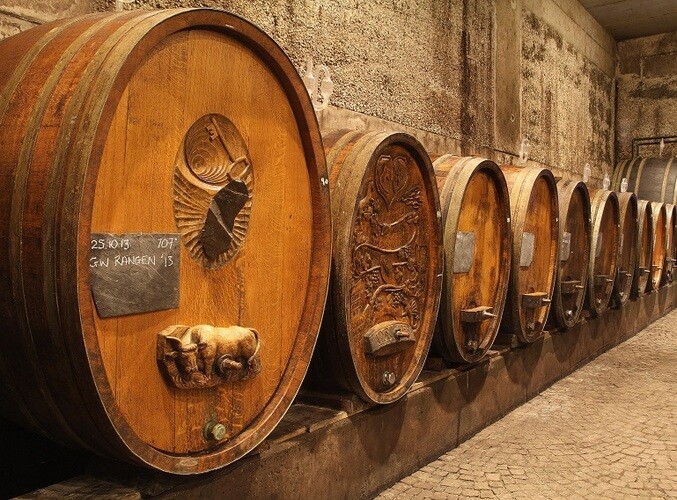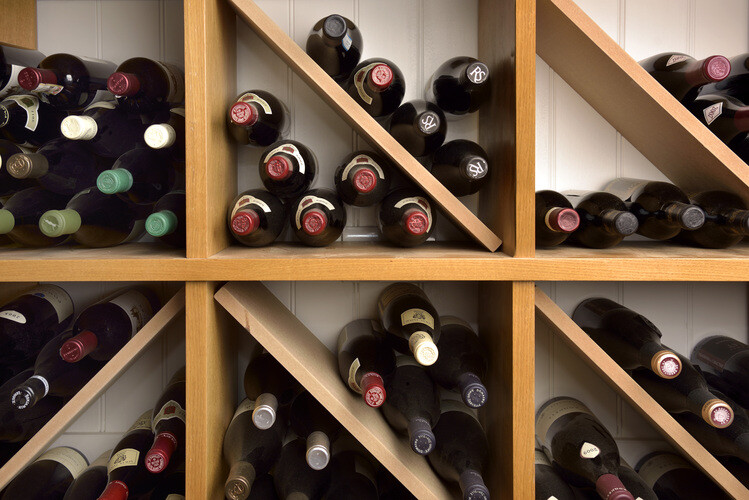Storing Wine at Home
The Perfect Temperature
If there’s one thing that simply must be right it’s temperature. Excessive heat can quickly spoil good wine and it needs to be kept in a cool environment to avoid damage. The ideal is considered to be between 10C and 20C. The temperature doesn’t need to be constant, and allowing a gradual change between summer and winter will keep energy costs - and carbon footprints - to a minimum. The best chateaux in Bordeaux have historically permitted seasonal variation in their cellar temperatures, so you can rest assured that you are in good company.
After temperature comes sunlight and vibration – both to be avoided if at all possible. Direct sunlight is likely to cause heat spikes, and some wines, notably champagne, undergo chemical changes when exposed to light for any period of time.

Being Practical
Having identified a cool corner of the house or outbuilding for your collection, probably against a north rather than a south-facing wall, it makes sense to keep a check on the temperature during the year. Sophisticated monitoring devices are available, including web-enabled systems which will alert you to ‘rogue’ temperature readings wherever you are in the world, however in our relatively stable environment a greenhouse thermometer is usually sufficient.
The challenge is to protect your valuable wines from bursts of heat, such as the summer heatwaves we occasionally experience. Some degree of insulation helps here – it takes several hours for wine inside a bottle to heat up in response to a temperature surge, and longer still if inside a wooden case – but you must take care to avoid trapping the heat in. Air conditioning is the most secure protection, but fan-assisted ventilation can be a close second in removing heat from an over-warm cellar.

Bespoke Solutions
A purpose built wine cellar is an asset to any property, not just for its looks and ambience but also because an architect can design in the necessary temperature protection. Specialist companies can fit out the cellar with racking in attractive woods too, altogether a fine solution. Another option is a Spiral Cellar, effectively an insulated hole in the ground with an integrated staircase build into the walls. Spiral Cellars are fitted with a discreet trap door and can be installed in the floor of a kitchen, den or outbuilding.
Mr.Wheeler’s team will be happy to offer suggestions and informal advice on wine storage, and to provide supplier details for all aspects of cellar creation. If you require further information or have any questions, please email sales@mrwheelerwine.com.

